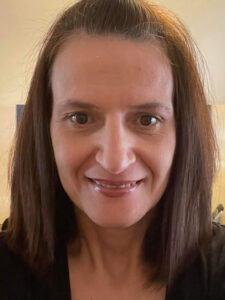
In the five years that I spent on the Board of Directors of No Stomach For Cancer, and as a member of our support team, I have talked to others who carry the CDH1 mutation about countless issues…. genetic testing, upcoming surgery, nutrition, life without a stomach… One of the biggest challenges, though, is not just the physical aspect of the diagnosis but the psychological/psycho-social issues as well.
First and foremost, most people feel lucky to have the information and choices, often choices that another family member did not have. Sadly, it is only after one or more deaths occur in a family that the CDH1 mutation is discovered in the family.
Many people have total gastrectomies- complete removal of the stomach- and, thankfully, do not require any kind of treatment. They have to make the huge adjustment to life without a stomach, but, overall, they do not require lots of medicines; in fact, they might not require any, except some initial pain medicine shortly after the surgery. You look at some patients and would never guess they do not have a stomach. They look “normal,” healthy even. And while they might look healthy, even “great,” they might be far from that. As everyone knows, , looks are deceiving.
You see, what many people do not understand about those who have had their stomachs removed ~and those fighting other illnesses, too~ is that each day might be a struggle. Some days, it takes all one’s energy to consume enough calories to get through the day. It is not simply about putting food into your body or “just eating a little more;” it requires tremendous strategizing and effort,. It is the same way people often feel when they are trying to lose weight- it takes a great deal of time and effort. You can no longer just put something in your mouth and wait for the calories to add up. You have to pace yourself. Eating a food that you could previously inhale might make you sick now. Or, eating that food could make you sick one day but be totally fine the next day. If you have too many incidents during which you feel sick, you could find it easier not to eat. Meanwhile, your weight may be dropping and you may even be getting too thin. Because our society values thin, people tell you you “look great,” even though you look in the mirror and see someone who is struggling. Hearing well-intentioned people telling you you “look great” can make you feel even worse, almost like you shouldn’t be feeling bad, down, or anything negative.
Because you look healthy, it is very difficult for people to understand that you may still be really struggling…. with nutrition, energy, loss of what your life “used to be” when you had a stomach. While you are going through it, you wonder if you will ever be “normal” again. Will you be able to exercise, run, chase your children, return to your job that is physically demanding…. will you have the stamina to get through the day???
As weeks and months pass after your surgery and people go back to their normal lives, there is an expectation that you will too. And you do…. And while you might be going through your normal routines, it is extremely challenging both physically and emotionally. You are not the same. You are not wallowing in self pity- after all, you know you are lucky to be cancer-free, an opportunity that many of our loved ones were not given. You don’t want to complain, because you know how lucky you are. However, you desperately want to get back to “the way things used to be,” to the days when simple tasks like eating and working did not require all of your energy. You wonder if having this life-saving surgery was worth it. Intellectually, you know it was, though psychologically and emotionally you are not so sure.
One of the trickiest parts of all of this is that “everyone is different.” What works for one person might not work for another. It is trial and error with so many things. It becomes overwhelming and exhausting.
I have just touched on a few of the issues that impact those who carry the CDH1 mutation. I realize that we are all at different places in dealing with it. Some of us are in our late teens and 20’s while others are in their 40’s, 50’s, and older. Each age group has unique challenges. There is a huge difference having a total gastrectomy at 20 versus 50.
My hope is that it will generate some honest discussion. We always want to provide a positive atmosphere because we believe that having hope and being positive are important to one’s physical recovery when dealing with any kind of challenge. However, we are realists, and know that there are many for whom physical and emotional recoveries have been very challenging, negative experiences.
-Beth Lambert